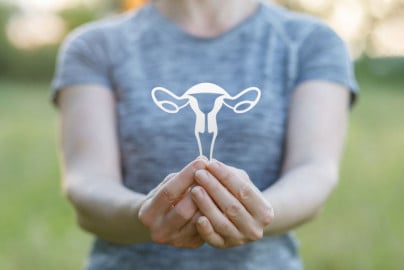Blog

Natural Ways to Support Endometriosis
If you have been diagnosed with endometriosis, you are probably aware that hormonal birth control is used as a first-line treatment. Oral contraceptives (i.e. birth control pills) are used to ease symptoms such as painful, extended menstrual cycles. However, mixed results are reported by some people, while others don't notice any benefit. Plus, this type of treatment presents a dilemma if you are trying to get pregnant. You may be interested to learn that studies support some natural treatment methods to alleviate symptoms of endometriosis, without inhibiting ovulation.
Natural Treatment of Endometriosis Pain
Pelvic pain is the most common symptom that prompts people to seek medical care for endometriosis; infertility is another common concern.
Nonsteroidal anti-inflammatory drugs (NSAIDs) such as ibuprofen (Motrin) and naproxen (Aleve) are often given to alleviate pain. Although these pain relievers can help some people with endometrial pain, studies on the effectiveness of over-the-counter medications for endometriosis-linked pelvic pain are inconclusive.
New research shows natural therapies may provide significant pain relief without causing side effects or compromising fertility. Natural herbs and supplements shown to help relieve endometriosis pain include:
- N-acetyl-Cysteine (NAC) - NAC was shown to relieve pain and significantly lower the incidence of cysts and lesions in many study participants.
- Probiotics - A study of 62 people with endometriosis found that 100mg for 12 weeks of a probiotic called lactobacillus gasseri helped to alleviate menstrual pain.
- Systemic enzymes
- Anti-inflammatory herbs (such as ginger and turmeric) - A review of six studies found that ginger was more effective than a placebo (sugar pill) for dysmenorrhea (painful menstruation) and equally as effective as NSAIDs).
- Vitamins - Supplements, such as vitamins C and E, were found to significantly reduce chronic pelvic pain and dysmenorrhea in study participants with endometriosis.
Other Natural Therapies for Endometriosis
Natural measures that may help alleviate symptoms of endometriosis include:
- Lifestyle changes - Research has shown that eating a fertility diet has a significant impact on infertility. The fertility diet is plant-based, including more proteins from vegetables, such as beans and legumes, than from animal sources. Eliminating unhealthy trans fats and sugar from your daily diet is also part of the fertility diet.
- Antioxidants - Endometriosis is linked with an increase in free radicals and chronic inflammation; antioxidants decrease free radicals and promote a healthy inflammatory response. Foods rich in antioxidants include red berries, blueberries, blackberries, beans, apples, dark leafy greens, other bright-colored fruits, and vegetables. Another excellent antioxidant for endometriosis treatment is Pycnogenol. According to a study published in the Journal of Reproductive Medicine, Pycnogenol reduces endometriosis symptoms by up to 33%
- Physical activity - You can reduce nerve pain by engaging in physical exercises such as pelvic floor muscle strengthening exercises. Ask your gynecologist about a physical therapist consultation, to learn techniques to ease nerve pain.
- Eliminate xenoestrogens (substances that have hormonal effects) - Check your cleaning supplies and personal care products for xenoestrogens; these products may negatively affect an already compromised hormonal system. Replace unhealthy products with natural, “paraben-free and phthalate-free” alternatives.
- Herbal preparations - Some natural and herbal remedies are known to help balance hormones, regulate the menstrual cycle, or reduce inflammation. Chamomile tea is thought to help inhibit endometrial cell growth, lavender may relieve menstrual cramps; and ginger, found in studies to minimize menstrual-related pain. Be sure to consult with your gynecologist before taking any herbs or supplements.
Final Reflections
It’s important to note that just like prescription and over-the-counter medications, herbal and natural supplements can have side effects and they can cause severe interactions when taken with some medications. Some types of physical exercise are not recommended for everyone, particularly if you are pregnant or have certain medical conditions (such as heart disease). Be sure to consult with your OB/GYN specialist before taking any vitamin or herbal supplement or starting an exercise program. If you are interested in scheduling an appointment for an endometriosis evaluation, or you have questions about endometriosis treatment, feel free to contact us at Pacific Women's Obstetrics & Gynecology in San Francisco today.
Back to blog